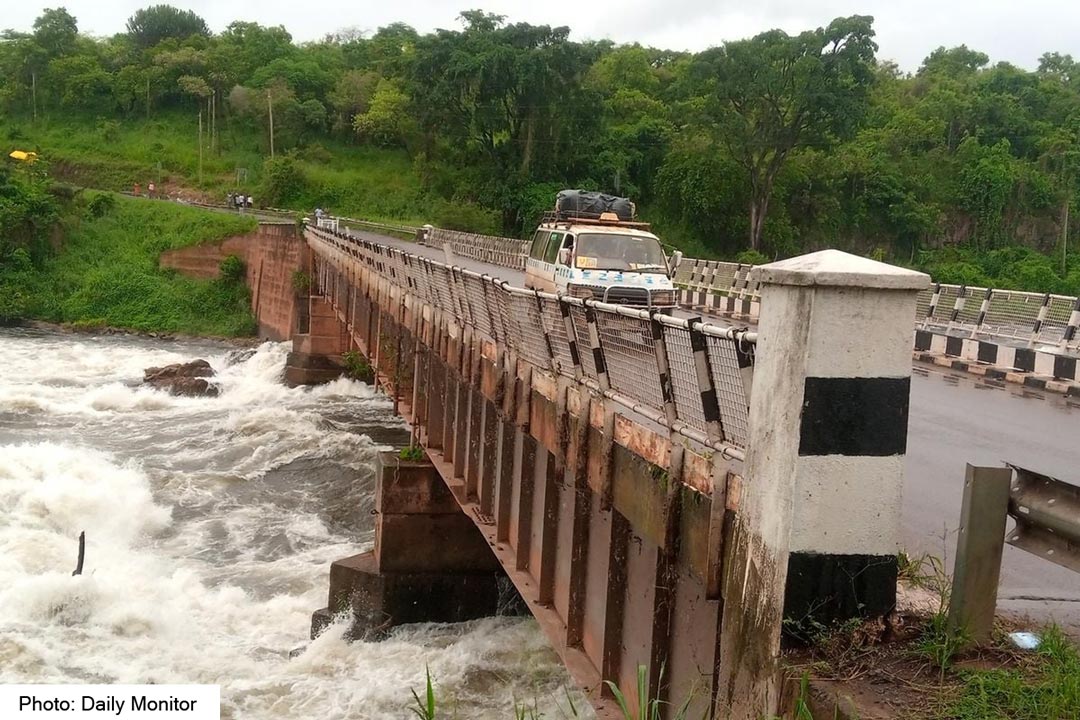
For travellers and business owners with ties to West Africa, the Karuma Bridge stands as an indispensable lifeline, just as the Kampala-Jinja highway is for those who frequent the beloved capital. Thus, it came as a shock to learn that the Karuma Bridge, connecting Northern Uganda, West Nile, and South Sudan to the rest of the country, is closed to all traffic for a whopping three months starting Monday, September 23, 2024. This unexpected closure leaves many wondering about the impact on trade and travel in the coming months.
Karuma Bridge Closure, announced by Uganda’s Minister of Works and Transport, Gen. Edward Katumba Wamala, comes as part of a rehabilitation project aimed at addressing the structural wear and tear that has worn out the bridge since its construction in 1962.
This deterioration was first noticed in April 2024 with signs of corrosion, cracks in the concrete and failing expansion joints, which led to temporary restrictions on the Karuma Bridge. However, further inspections revealed that the condition was more severe than initially thought, necessitating its full closure for comprehensive repairs.
𝐊𝐀𝐑𝐔𝐌𝐀 𝐂𝐋𝐎𝐒𝐔𝐑𝐄
After inspection, I have decided and announced the closure of 𝐊𝐚𝐫𝐮𝐦𝐚 𝐁𝐫𝐢𝐝𝐠𝐞 𝐭𝐨 𝐀𝐋𝐋 𝐭𝐫𝐚𝐟𝐟𝐢𝐜 starting 𝐌𝐨𝐧𝐝𝐚𝐲 𝐒𝐞𝐩𝐭𝐞𝐦𝐛𝐞𝐫 𝟐𝟑𝐫𝐝, 𝟐𝟎𝟐𝟒.
The contractor will start the demolition of the concrete deck immediately… pic.twitter.com/P8geYIwGqM
Related Stories: UMEME Exit from Uganda’s Electricity Distribution: UEB’s Return?— General Edward Katumba Wamala (@GenWamala) September 17, 2024
The repair works were contracted by China Railway Seventh Group to commence in July, and the National Enterprise Corporation (NEC) is focusing on demolishing and replacing the bridge’s entire concrete deck. In addition to this, new safety features like stronger guard rails and improved night lighting will be introduced, ensuring long-term durability and enhancing road safety for all who use the bridge.
But while the reconstruction and repairs are a positive endeavour, we must also consider how this closure will impact the daily lives of those who depend on this vital route.
Undoubtedly, the closure of the Karuma bridge poses a disruption in Uganda’s transport network, especially for the Northern and Western regions. Karuma serves as a primary gateway between Northern Uganda, South Sudan and West Nile, thus its closure has forced motorists and businesses to rely on alternative routes, causing delays and higher transportation costs. For instance, travellers from Kampala to Gulu and West Nile must now use longer routes through the Lango Sub-region or the Murchison Falls National Park, which significantly increases travel time expenses.
It should come as no surprise that the flow of goods is expected to be affected, especially for traders in Northern Uganda and West Nile. Essential supplies such as food are likely to face delays due to the detours, impacting both local markets and exports to the neighbouring South Sudan. The added travel burden for commercial trucks is also expected to drive up the prices of goods in these regions.
To mitigate these challenges, several measures have been put in place, with one of the most significant interventions being the deployment of an additional ferry at Masindi Port. This ferry will provide a viable alternative route for vehicles travelling between Kampala, Gulu, and West Nile, and is expected to handle the increased traffic load resulting from the closure.
Authorities have also urged motorists to use other established detours, including the Rwenkunye-Apac route and the Iganga-Nakalama-Tirinyi-Pallisa-Soroti-Lira road, depending on their destination. Despite these measures, the alternative routes are significantly longer, and the increased congestion poses additional challenges for drivers.
Although the closure of the Karuma Bridge is inconvenient, it’s a necessary step towards the safety and reliability of this vital transportation link. The Ministry of Works and Transport has set a completion target of December 2024, with hopes of reopening the bridge in time for the holiday season when traffic is usually at its peak.
In the long term, the government plans to construct a new bridge at Karuma, as part of a broader strategy to improve Uganda’s regional connectivity. This project will complement ongoing infrastructure developments in Pakwach, Masindi Port, and Laropi, all aimed at enhancing transportation efficiency across Northern and Midwestern Uganda
We hope that these long-term benefits of the repairs will not only support the growing traffic demands in the region but also enhance trade between Uganda and our northern neighbours.